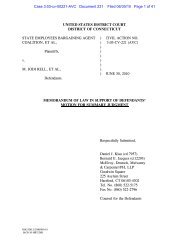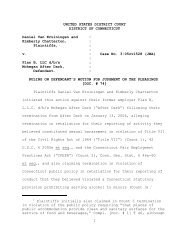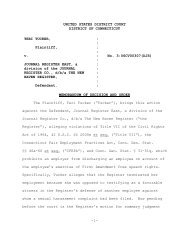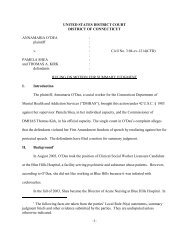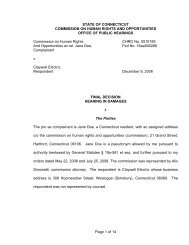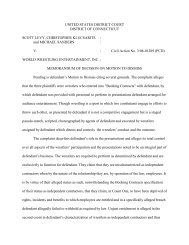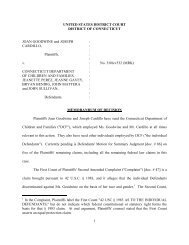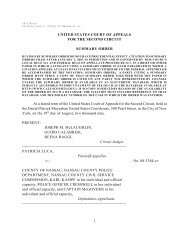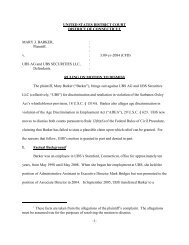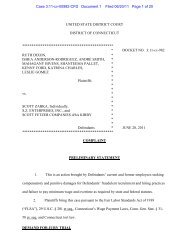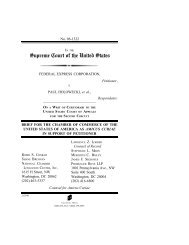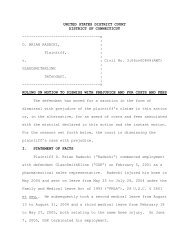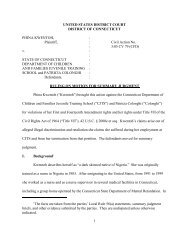CHRO ex. rel. Lenotti v. City of Stamford - Connecticut Employment ...
CHRO ex. rel. Lenotti v. City of Stamford - Connecticut Employment ...
CHRO ex. rel. Lenotti v. City of Stamford - Connecticut Employment ...
You also want an ePaper? Increase the reach of your titles
YUMPU automatically turns print PDFs into web optimized ePapers that Google loves.
lieutenants and acting captains read the same materials Tr. 740, 746-47. He stated thatat the emergency scene, someone may have to read placards, MSDS, or othermaterials, which can be read by the first person arriving at the scene who can be afirefighter in the position <strong>of</strong> acting lieutenant, a lieutenant, or captain. Tr. 743-47. Therate at which the complainant read has never been a safety problem. FF 36.The respondent’s belief that complainant’s disability would cause harm to publicsafety is mere speculation. In Dipol v. New York Transit Authority, 999 F.Sup. 309, 316(E.D.N.Y 1998), the court held “[a] slightly increased risk is not enough to constitute adirect threat; there must be a high probability <strong>of</strong> substantial harm. . . . Moreover, a merespeculative or remote risk is not sufficient . . ..” (Citations omitted.) Similarly, in Jansenv. Food, supra, 110 N.J. 377-78, the court held “to invoke the safety defense as ajustification for otherwise unlawful discrimination, the employer must reasonablyconclude that the employee’s [disability] poses a materially enhanced risk <strong>of</strong> seriousinjury. . . . [I]n the absence <strong>of</strong> <strong>ex</strong>pert testimony linking the likelihood <strong>of</strong> a seizure to thelikelihood <strong>of</strong> harm, the lower courts should not have assumed that Jansen was unableto work as a meat cutter without materially enhancing the risk <strong>of</strong> harm to himself orothers. Jansen’s work involved the use <strong>of</strong> sharp instruments, . . . [the employer] mustprove, not assume, that [the plaintiff] was dangerous.” Here, the evidence shows thatthe respondent did not consult medical <strong>ex</strong>perts, the complainant or any pr<strong>of</strong>essionalsother than Chief McGrath (FF 28), which it should have done in order to determinewhether the complainant’s disability would pose a significant risk <strong>of</strong> substantial harm toothers or that he could not safely work as a captain.Page 36 <strong>of</strong> 49



